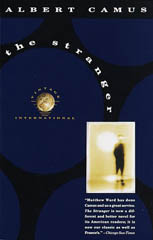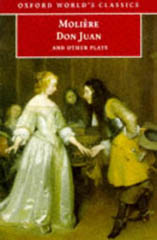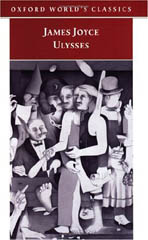Flitting Across the Shelves
I have always liked the Scots use of the word ‘flit’ to mean ‘move house’, with its suggestion that all our residences are fleeting, transitory, temporary. My book collecting has been predicated by flits, by the practicalities of moving objects from one place to another. I’ve lost count of the times I moved as a student, and in the five or six years after I graduated. In those days there was always the repository of a tall, glass-fronted bookcase in my bedroom at my parents’ house, where my old, childhood books rubbed shoulders with whatever I had picked up from short-term sojourns in a variety of cities and countries.

Perhaps predictably, the travelling eventually wound down, the leases became longer, and I got married and bought a house (or at least a small city flat). My parents themselves flitted shortly afterwards, and decided that their days of housing my personal ‘stack’ were over. So I had to choose what I wanted and what to discard.
 Discarding seems a healthy thing to do: I keep anything I agonise over, but those books I have definitely read but can’t remember anything about are right for the chop. No book (especially the type favoured by the shallow pockets of youth) is permanent; some fall apart, others are rendered all but unreadable by annotation and underlining. I loved reading Camus’ L’Etranger at university in 1979, but earlier this year, out went my student copy. Should I ever want to read it again, went the reasoning, I should do so from the perspective of now, without having to take into account those studious markings of so long ago. The same book can be read very differently at different times in life. For example, in my last year at school I read Thomas Mann’s novella Tonio Kröger and remembered it with great fondness, if rather vaguely, as I discovered, when discussing it with a friend who mentioned a particular episode I had entirely forgotten. I had responded most strongly then to Tonio’s desire to leave his home town, to see the world and become an ‘artist’. When I re-read it last year it was the later, rather uncertain return to that home town, and the move on from that point, that had the strongest resonance.
Discarding seems a healthy thing to do: I keep anything I agonise over, but those books I have definitely read but can’t remember anything about are right for the chop. No book (especially the type favoured by the shallow pockets of youth) is permanent; some fall apart, others are rendered all but unreadable by annotation and underlining. I loved reading Camus’ L’Etranger at university in 1979, but earlier this year, out went my student copy. Should I ever want to read it again, went the reasoning, I should do so from the perspective of now, without having to take into account those studious markings of so long ago. The same book can be read very differently at different times in life. For example, in my last year at school I read Thomas Mann’s novella Tonio Kröger and remembered it with great fondness, if rather vaguely, as I discovered, when discussing it with a friend who mentioned a particular episode I had entirely forgotten. I had responded most strongly then to Tonio’s desire to leave his home town, to see the world and become an ‘artist’. When I re-read it last year it was the later, rather uncertain return to that home town, and the move on from that point, that had the strongest resonance.
I used to think that I could somehow ‘possess’ a book by reading it carefully: that it would stay with me in a kind of fixed form. But most of the works which I still rate highly and recommend to others, I have largely forgotten. Nonetheless, passages or images emerge at times from that forgetfulness, whether in conversation or thought or as part of a piece of writing; and re-reading becomes a new experience, where both the previous and the current reading come into play. There are also the loved books I’ve never owned, because my reading copies have belonged to libraries or to friends. Kundera’s The Unbearable Lightness of Being, The Myth of the Eternal Return by Mircea Eliade, Angela Carter’s The Magic Toyshop and Nights at the Circus. Sometimes I’ve thought of buying a copy, but really it seems a bit pointless: the ideas, images and characters gleaned from them are the most important thing.
 I had a similar experience recently at the theatre, while watching a production of Moli
I had a similar experience recently at the theatre, while watching a production of Moli
ère’s Don Juan. Beforehand I had tried to give my wife a rough outline of the plot and had failed, remembering only fragments: but during the production it all came back, so that as well as being sparked by familiar individual lines, I had a sense of the wider architecture of the play. I still followed it as a narrative, but as I knew how it was going to work out, I could pay more attention to the underlying details. I still regret discarding a Comédie-Française edition of that play. In the ‘scholarly’ edition I kept because of all its ‘useful’ background information, the script is so weighed down with footnotes and annotations that it takes all the pleasure away from reading it. I have spent many evenings scouring bookshelves in search of something I can’t believe I no longer have; and I can still picture my simple, un-annotated copy, just there on the shelf…
I’m not a collector of ‘valuable’ or antiquarian books; I enjoy books because of their contents and/or form. But I am pleased to be the owner of certain books, such as a volume of the Essayes of Montaigne, translated by John Florio, and published in 1891 in miniature format by David Stott of London as part of The Stott Library. Dedicated to RLS, it has the following publisher’s preface: ‘Under this title I am now issuing a Series of Books by the best Writers, in 32mo size, elegantly printed on toned paper, in a beautifully clear type. Each Volume contains an Etching as frontispiece, and is published at Three Shillings, and any Volume can be had separately.’ I’m also very fond of a rather fragile edition of Les Fleurs du Mal, published by Insel-Verlag, Leipzig, as part of its Bibliotheca Mundi series. It contains only the poems, in French, a new page for each, with a portrait of Baudelaire as the frontispiece. And I have a numbered first edition of Camus’ L’Exil et le Royaume (Gallimard,1957), though as it is no. 3789 of 5000 I doubt it has appreciated much in value; and a first edition of Soutar’s The Expectant Silence, published posthumously in 1944 by Andrew Dakers, London, and formerly belonging to Hawick Public Library. All of these were bought in the early eighties for next to nothing. One quite unexceptional book I bought new is Ezra Pound’s Selected Poems (Faber, 1981), enhanced however by a bay-leaf picked from the tree growing on his grave (between pp.168-9 – I can’t remember whether this is significant or not). Finally, there is the Poems of Robert Burns, published as part of The Penguin Poets series in 1946. The blue card cover has become detached from the pages and the paper is rather thin, but the poems are nicely printed with a practical marginal glossary, and the whole is a delight to handle – small and light, yet containing much, all of which is well ordered and presented.
 My collection is a mix, like most collections, I suppose, of books once enjoyed which probably won’t be opened again; books read once which are ripe for a re-reading; and the still unread ones, for which there is always hope. Three years ago, for instance, I read Ulysses for the first time; and I almost got rid of Finnegans Wake this summer, and then retrieved it from the discard pile…
My collection is a mix, like most collections, I suppose, of books once enjoyed which probably won’t be opened again; books read once which are ripe for a re-reading; and the still unread ones, for which there is always hope. Three years ago, for instance, I read Ulysses for the first time; and I almost got rid of Finnegans Wake this summer, and then retrieved it from the discard pile…
Once, when I was still at school, I switched on the TV and discovered a gnarled old Ezra Pound sitting on a wooden chair in an empty room saying that you only needed half a dozen books in your whole life. I wasn’t too keen on this idea, being still at the acquisitive or expansionist stage; but having got to where I am now I’m beginning to see the sense of it.
© Ken Cockburn 2006

Comments